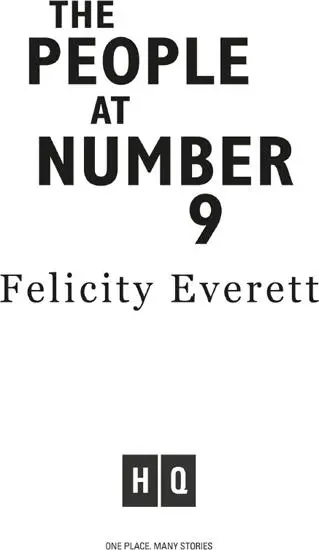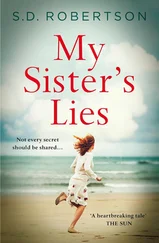FELICITY EVERETTgrew up in Manchester and attended Sussex University. After an early career in children’s publishing and freelance writing, which produced more than twenty-five works of children’s fiction and non-fiction, Felicity’s debut novel The Story of Us was published in 2011. She has just returned from four years in Australia and lives in Gloucestershire.

But now I am no longer I,
nor is my house any longer my house.
FEDERICO GARCIA LORCA
Contents
Cover
About the Author FELICITY EVERETT grew up in Manchester and attended Sussex University. After an early career in children’s publishing and freelance writing, which produced more than twenty-five works of children’s fiction and non-fiction, Felicity’s debut novel The Story of Us was published in 2011. She has just returned from four years in Australia and lives in Gloucestershire.
Title Page
Chapter 1
Chapter 2
Chapter 3
Chapter 4
Chapter 5
Chapter 6
Chapter 7
Chapter 8
Chapter 9
Chapter 10
Chapter 11
Chapter 12
Chapter 13
Chapter 14
Chapter 15
Chapter 16
Chapter 17
Chapter 18
Chapter 19
Chapter 20
Chapter 21
Chapter 22
Chapter 23
Chapter 24
Chapter 25
Chapter 26
Chapter 27
Chapter 28
Acknowledgements
Why I wrote The People at Number 9
Reading group questions:
Copyright
1
Sara’s gaze drifted toward the window. It was dark outside now, and she could see her own reflection superimposed like a hologram on the house across the road. Their curtains were half-closed but the cold blue flicker of the TV could just be seen. She imagined Gavin lounging in the Eames chair with a glass of red, Lou lolling barefoot on the sofa. They might be watching an art-house movie together – or perhaps just slumming it with Saturday night telly. It was all too easy to conjure – the flea-bitten hearth-rug, the aroma of Pinot Noir mingled with woodsmoke. Even after everything that had happened, the scene still had its allure.
From their vantage point, Carol’s place would be a goldfish bowl – blinds open, lights blazing, a room full of people and more arriving. Sara hoped they had noticed. She hoped their exclusion would hurt, but she doubted it. Her focus shifted, once again, to her own face, a ghostly smudge in the sheen of the windowpane.
***
Eighteen months earlier
The first time Sara saw their car, she thought it had been dumped, it looked so incongruous among all the people carriers and Volkswagens. Its rear wheel was perched on the kerb, while its front ones were skewed at an alarming angle. It was a red and grey vintage Humber with a missing hubcap, a slew of rubbish in the passenger footwell and a baby seat in the back. Over the next few days, however, she spotted the car a number of times; not always so erratically parked, but usually within a stone’s throw of her house.
She was standing outside Carol’s, debriefing after the school run, when she noticed her friend’s concentration drift.
“Check out our new neighbour,” Carol murmured, nodding toward the other side of the street.
Sara glanced casually across. Got up in a boiler suit and headscarf, like Rosie the Riveter, the woman was struggling to steer a wheelbarrow of debris down the front path.
“She’s seen us,” murmured Carol. “Smile. Wave.”
Sara did so, regretting the aura she knew they must project, of complacency and cliquiness. The woman acknowledged them with an anxious smile.
Her house was the semi-detached twin of Sara’s. Bay windows, stuccoed porches, steep gables mirrored one another brick for brick and tile for tile, but while Sara’s house exuded bourgeois respectability, number 9 was a mess – peeling paint, rotten window-frames, sagging gutters. Still, they were doing it up now, and as noisy and dirty as the process continued to be, it was to be welcomed. As were the neighbours themselves. On an impulse, Sara left Carol to mind the boys and crossed the road.
“Looks like hard work!” she said, opening the gate. Her neighbour trundled the barrow out onto the street, up a makeshift gangplank and tipped its contents into the skip. She reversed back down and lowered the wheelbarrow to the pavement, before holding both hands out in front of her as if about to play an imaginary piano. It took Sara a moment to realise that she was demonstrating a tremor brought on by the exertion of pushing the barrow.
“Goodness,” said Sara.
“I know!” said her neighbour, then, after wiping her palm clean on her overalls, she held it out.
“I’m Lou.”
“Sara.”
Saah-ra. The syllables seemed to ooze like syrup, speaking of bedtime stories and ballet lessons. Not for the first time, she wished she were called something else.
“And can I just say, I feel terrible,” she added.
“Why?”
“Well, you’ve been here, what, a week…?”
“Two.”
“… And we haven’t been round to say hello. I kept meaning to, but you always seemed so busy.”
She was sounding like a curtain-twitcher now.
“Oh God, it’s me who should apologise. We’ve had our heads up our arses. The building work was meant to be finished before we moved in but,” she shrugged apologetically, “you know how it is.”
“Oh, totally,” Sara said.
“And then, just when we thought things couldn’t get any worse, the art-handlers fucked up and we had to store a million quid’s worth of Gav’s artwork, with half the house hanging off!”
“Gosh,” was all Sara could think of to say.
“Anyway,” Lou made to pick up the barrow again, “we’ll sort something soon…”
“Pop in later if you want,” Sara blurted. “It’s just me and the kids.”
Lou arrived on a waft of expensive, grassy perfume. Her hair was damp and she had changed into an embroidered shirt and jeans. There was something equine about her, Sara thought – a wariness that invited soothing. She had only brought one of the children – an angelic-looking child with shoulder-length, white-blond hair.
“Sara, this is Dash.”
“Hi, Dash,” Sara said, and was treated to a sunny, yet slightly unnerving, smile.
“Patrick! Caleb!” She then called over her shoulder. The trill and clatter of the Xbox continued unabated. Sara turned apologetically to Lou, “Perhaps she should just go through. They’re pretty tame.”
“ He ,” Lou corrected her.
“Oh!” Sara recoiled in embarrassment, “I thought… the hair.”
“It’s Dash iell ,” said Lou, “as in Hammett.”
“Of course. Gosh. I don’t know how I… obviously you’re a boy, Dash. Sorry. It was only because of the…”
“… Hair. Yes, it does confuse some people.”
Lou’s neutrality on the issue, her complete lack of embarrassment or rancour only made Sara feel worse. Her own two children had by now appeared, Patrick, the younger one, skidded to a stop in his socked feet, ahead of Caleb, who followed with the world-weary lope of the pre-adolescent.
“So this is Dashiell,” Sara said, the colour still high in her cheeks. “He lives next door. Dashiell, these are my boys, Caleb and Patrick.”
Sara led Lou to the kitchen. It was the best room. The only room really, that she felt truly reflected her taste. Neil had wanted to economise on the re-fit, but egged on by Carol, Sara had gone all-out, sourcing artisanal tiles to set off the cherry-red Aga and agonising over subtly different shades of sustainable hardwood flooring. She had been vindicated, too. Eighteen months on, the stainless-steel work surface had acquired the odd dent and the cupboard fronts were scuffed, but the room still had a warmth and integrity to it. Even today, with the sink full of dirty dishes and the boys’ lunch boxes spewing rubbish across the table, it looked lived-in rather than squalid. So accustomed had she become to fending off compliments, in fact, that it came as something of a surprise when Lou offered none. Instead her visitor cast an appraising eye around the room before meeting Sara’s, with an inscrutable smile.
Читать дальше













